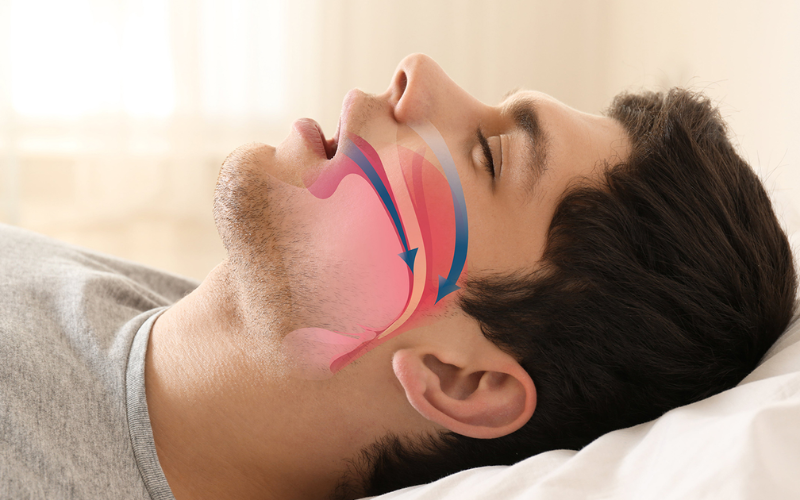
Have you ever been startled awake by your own snoring, or worse, had a restless night because of someone who makes a freight train noise? Snoring is your body’s way of telling you something isn’t quite right, and it’s not simply a nocturnal annoyance. But why is there so much commotion? The main cause of snoring can surprise you and begin from obstructed airways to lifestyle decisions. Let’s see the main cause of such vibrations at night and learn appropriate coping mechanisms.
What Takes Place While Snoring?
Snoring is the result of partially obstructed airflow during sleep, which causes the throat’s tissues to vibrate. The loud, rumbling sound that we associate with snoring is the result of this. Numerous factors, including sleeping positions, physical issues, and lifestyle choices, might cause the blockage.
Obstruction of The Airways: The Primary Cause of Snoring
Obstructed airflow during sleep is the main cause of snoring. Air finds it difficult to move through a partially closed airway, which causes tissue vibrations in the throat. This obstruction is caused by various reasons, including:
- When you sleep deeply, your throat muscles relax, which makes it harder to breathe and makes snoring more likely.
- Snoring can be exacerbated by forced mouth breathing caused by stuffy nose from allergies, colds, or sinus infections.
- Carrying too much weight around the neck can constrict the airway, making breathing more challenging. Sleep apnea treatment helps clear airway obstruction and improve breathing.
- The tongue falls backward when you sleep on your back, partially obstructing your throat.
- Alcohol and sedatives cause the muscles in the throat to relax, which exacerbates snoring and airway obstruction.
Snoring Facts You Should Know
The American Academy of Sleep Medicine states that 25% of adults snore regularly, whereas 45% snore occasionally. Periodic snoring may not be concerning, but continuous snoring may be a sign of a more serious problem, like sleep apnea, a disorder in which breathing regularly stops and starts while you’re asleep.
Simple Ways to Reduce Snoring
Snoring doesn’t have to be a lifelong problem. Try these simple tips to reduce or prevent it:
- Alter your sleep position to avoid airway collapse, try sleeping on your side.
- Losing a few pounds will help you lose neck fat and open up your airway.
- Stop taking alcohol and sedatives right before bed to maintain firm throat muscles.
- Maintain clear nasal passages. To reduce congestion, use saline sprays, steam, or nasal strips.
- Get an anti-snoring device. Nasal dilators and mouthpieces can help in maintaining open airways.
When Is It Time to Get Worried?
Obstructive sleep apnea (OSA), which can cause health problems like high blood pressure, heart disease, and daytime weariness, can occasionally be identified by snoring. Keep an eye out for these signs:
- Excessive daytime sleepiness.
- Loud snoring that is accompanied by choking or gasping sounds.
- Dry mouth or headaches in the morning.
- Changes in mood or trouble focusing.
To rule out sleep apnea, see a sleep specialist if you encounter these symptoms.
Snoring is often seen as just a noisy habit, but it can be a sign of serious health problems. While occasional snoring is normal, frequent snoring should not be ignored. Making small changes can help you sleep better and more peacefully.
Still snoring? Then maybe it’s time for you to consult our doctor for a restful night’s sleep.



